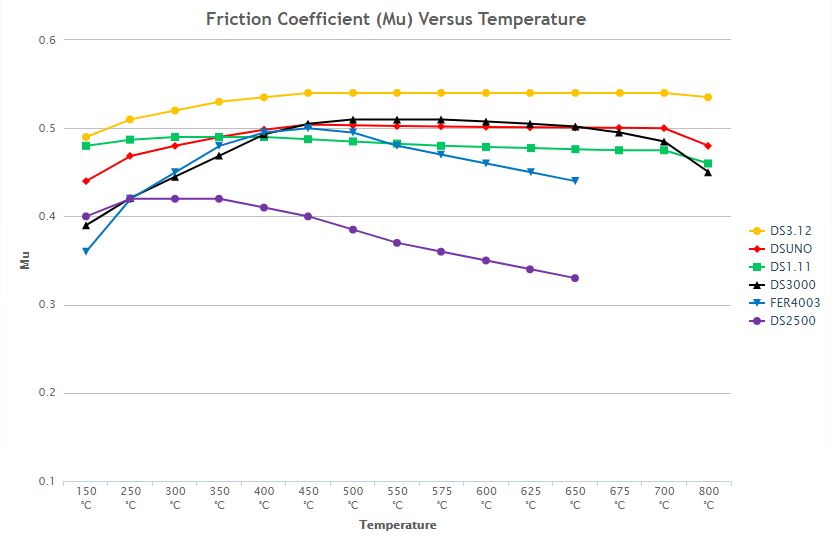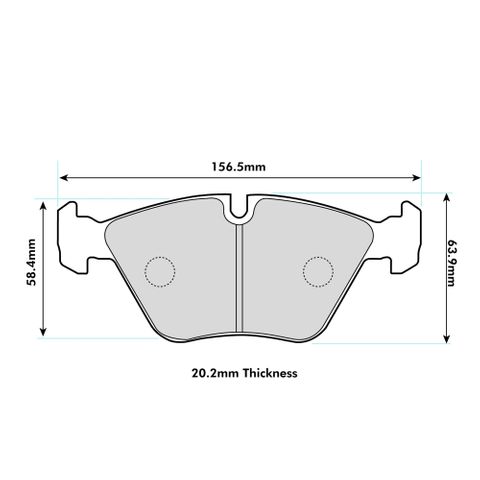Ferodo Brake Pads - BMW 330i, M3, M4, Z3 & Z4 Front
Description
These pads will fit the following vehicles;
- BMW 120d & 130i [E81 & E87]
- BMW 330i [E46]
- BMW M3 [E36] 3.0 & 3.2
- BMW M3 [E46] & M3 CSL
- BMW M5 [E34]
- BMW Z3 M Coupe [E36]
- BMW Z3 M Roadster 3.2i
- BMW Z4 M Coupe
These pads are also available in the following compounds;
Ferodo DS1:11
Ferodo DS1.11 compound brake pads are engineered to provide a medium / high level of friction over a wide temperature range. They have excellent fade resistance to temperatures beyond 800 degrees C and have a low wear rate.
- Medium / high friction levels over a wide temperature range (200-700 degrees C)
- Flat friction curve provides predictable braking lap after lap
- Excellent pad life (up to 3 x longer than a DS3000 compound)
- Low pad compression gives short pedal travel and a firm feel
Ferodo DS1.11 competition brake pads use ceramic technology based on a chemical family called 'Siloxanes'. Unlike carbon based materials these do not decompose at high temperatures. This is what gives the DS1.11 the ability to perform at the highest temperatures with no fade. DS1.11 pads are very kind to discs and have a low wear rate meaning less frequent brake changes. Ideal for use in GT cars, Touring cars and formula cars, particularly in longer races.
Ferodo DS3:12
The Ferodo DS3.12 compound has been developed from testing with top level GT race teams and is designed to benefit heavier, more powerful race cars. DS3.12 compound pads feature a very flat torque curve for predictable and consistent braking which is perfect for cars with ABS.
- Highest friction level of any Ferodo compound. Suitable for heavier cars running wide slicks.
- Flat torque curve for excellent predictability and consistency up to 850 deg C
- Longest pad life of any Ferodo compound
- Initial braking torque designed to complement ABS
- Thermally treated for reduced bedding in time
Ferodo DS3.12 brake pads are ideally suited to heavy, powerful cars with a lot of grip. They offer fade free braking up to a temperature of 850 deg C with a virtually flat torque curve between 400-700 deg C. This provides extremely predictable braking lap after lap with reduced pedal travel. The initial torque curve is designed to provide a smooth introduction of ABS for improved driver confidence. Recommended for sprint and medium duration races.


